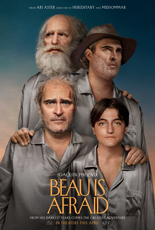
It’s hard to believe in David Gordon Green, let alone any follow-up to William Friedkin’s traumatizing classic. Unlike horror franchises with a gratuitously marketable villain — like Halloween, Friday the 13th or C.H.U.D. — The Exorcist has to make do with a concept. And you can’t exactly trademark demonic possession, hence the wave of exorcism films that erode the legacy of the original. (Hell, just Google “the exorcism of” and you’ll stumble upon so many uninspired films, you’ll question why it took until 2021 for someone to finally produce The Exorcism of God.)
Even though The Exorcist influenced a heap of bargain-bin fillers, you also could argue it’s responsible for iconic flicks like Hereditary, The Evil Dead and Amityville Karen. It makes sense The Exorcist series persists. What doesn’t make sense, however, is putting Green at the helm of its revival — even more so after the director proved his recent Halloween trilogy should’ve ended before we endured two half-baked sequels. Unfortunately, The Exorcist: Believer doesn’t rid Green of whatever curse haunts him.
Thirteen years after his wife’s death, Victor (Leslie Odom Jr., Glass Onion) struggles to raise his daughter, Angela (Lidya Jewett, Black Panther), in a secular household. At the same time, devout Baptists Miranda (Sugarland vocalist Jennifer Nettles) and Tony (Norbert Leo Butz, 2010’s Fair Play) prepare for the baptism of their daughter, Katherine (newcomer Olivia Marcum). The week before the ceremony, Angela and Katherine disappear for three days when they ditch school to try and commune with Angela’s mother. Once found, the two act out by wetting their beds, masturbating during a Sunday service and psychically levitating furniture. (You know, teen stuff.)
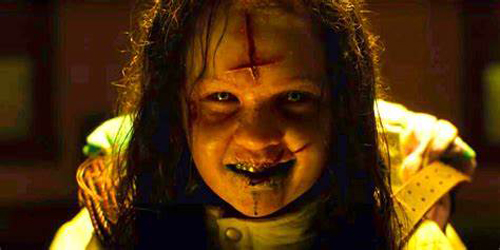
Notice anything missing from that premise? Maybe, I don’t know, an exorcist? Ann (Ann Dowd, Compliance), a would-be nun turned nurse, plays the new Damien Karras. She even has a compelling background, as the shame of an abortion before her confirmation sets her up for a redemption arc. Tragically, Green makes no conscious effort to explore this beyond rushed exposition dumps.
What the filmmaker misses — and will probably keep missing — is what most imitators fail to capture, too. The Exorcist doesn’t earn its staying power through the gratuitous and demonic possession, but with compelling characters. In Believer, Green and co. almost get it with Victor and Ann’s background, but they repeatedly avoid exploring people in favor of cheap thrills and frankly boring sequences. At the same time, they reaffirm the idea of faith (specifically, Christianity) so much, there’s no room for doubt to emerge as a meaningful theme.
Beyond revenue, it’s hard to imagine what gave Green (or anyone involved with this garbage fire) the confidence to move forward with Believer. It’s as if the demon of boring horror requels — let’s call it “Pasnoozu” — has grown more powerful.
Granted, Believer is so bad, it might make the rest of the trilogy better by extension. After all, when the bar’s so low it’s basically in hell, 2025’s The Exorcist: Deceiver can’t be worse, right? Right?! —Daniel Bokemper

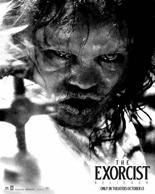
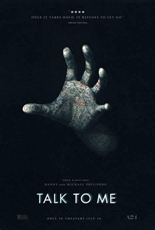
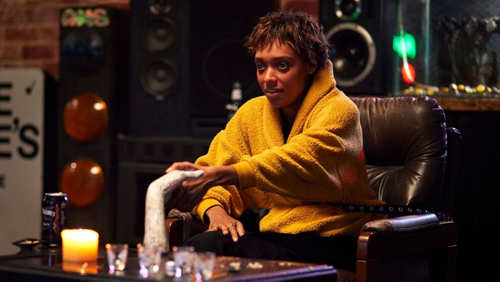
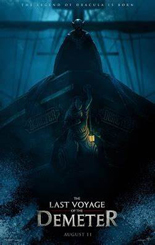
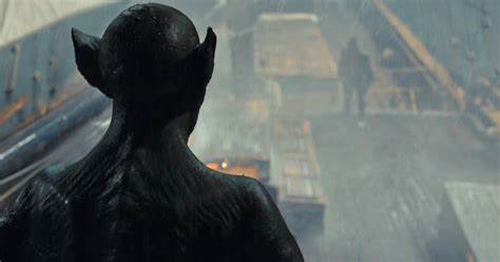
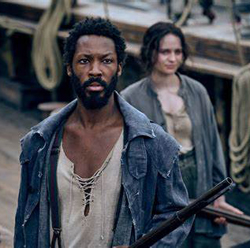
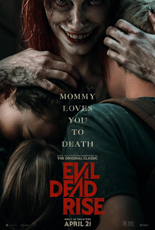
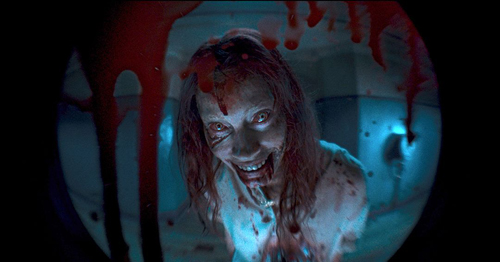
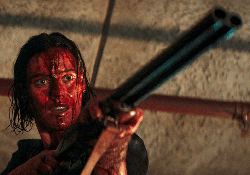 Most of the sequences capture the franchise’s frenetic pace despite the new setting. In lieu of a fruit cellar, Ellie spends a chunk of the film stalking the hallway outside her apartment. The unit door’s peephole sets the stage for a vivid bloodbath that makes the most of the movie’s limited budget. Continually, Evil Dead Rise delivers frights that far outclass movies like
Most of the sequences capture the franchise’s frenetic pace despite the new setting. In lieu of a fruit cellar, Ellie spends a chunk of the film stalking the hallway outside her apartment. The unit door’s peephole sets the stage for a vivid bloodbath that makes the most of the movie’s limited budget. Continually, Evil Dead Rise delivers frights that far outclass movies like 
